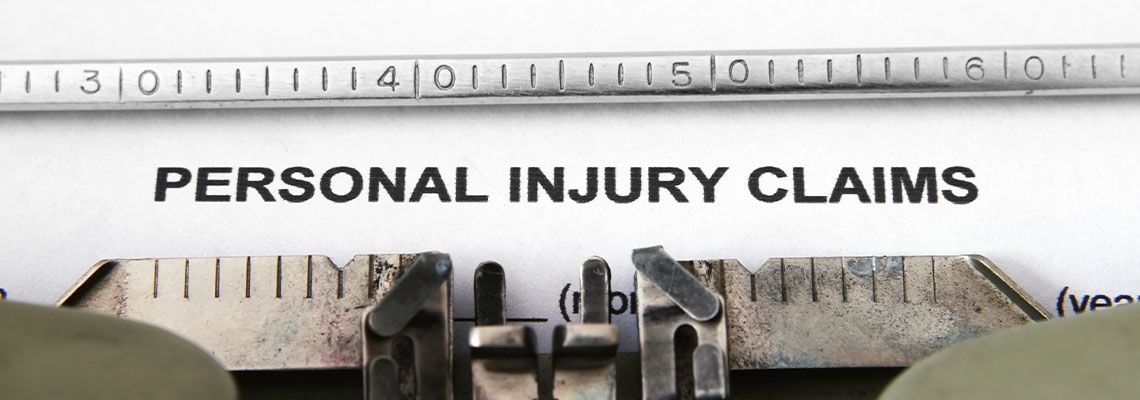How Do Pre-Existing Medical Conditions Affect a Personal Injury Claim?

When people are injured in an accident caused by someone else’s negligence, it won’t be the first injury they will sustain. Particularly as people age, they develop arthritis and degenerative bone and joint issues. When the liability insurer for the negligent party wants to see your medical records from years prior to the accident, they are looking for evidence of pre-existing medical conditions.
Why? They want to find ways to reduce the value of your personal injury claim. You can count on it.
Pre-existing medical conditions play a vital role in your personal injury settlement. That is why it is critical that your personal injury attorney put them in the right context as you pursue a claim. Experienced and knowledgeable personal injury attorneys, like Mr. Slechter and Mrs. Slechter, understand.
The attorneys at Slechter Law Firm, PLLC, don’t turn away injured clients with pre-existing medical conditions. We deal with them. If a pre-existing condition is part of your personal injury claim in Louisville, Lexington, or anywhere in the state of Kentucky, we can help.
What Qualifies as “Pre-Existing Medical Conditions?”
Pre-existing medical conditions are any past injury, disease, congenital or degenerative condition, or other physical or mental health issue someone had prior to suffering a new injury.
Examples of pre-existing conditions cover virtually everything from congenital defects, asthma, and seizures to healed and unhealed fractures, strains, and sprains to Alzheimer’s and other dementia. They also include substance abuse, cancer, obesity, pregnancy, HIV/AIDS, and diseases and disorders such as diabetes, cerebral palsy, epilepsy, hemophilia, multiple sclerosis, muscular dystrophy, lupus, fibromyalgia, and rheumatoid arthritis.
How Do Pre-Existing Conditions Affect Personal Injury Claims?
Personal injury settlements are intended to make the victim injured by someone else’s neglect whole again. If you suffer a whiplash injury in a car accident caused by a texting driver, that driver is responsible for compensating you for the cost of your whiplash-related medical treatment, lost wages, and your pain and suffering caused. However, the negligent party is not responsible for compensating you for treatment for skin cancer. The cancer was an existing condition prior to the crash and was not exacerbated by it.
In this example, the pre-existing condition and the crash injury are unrelated, and therefore easier to separate the two as a compensable injury and a non-compensable one. That isn’t always the case. Often, it is more difficult to distinguish between the two. When it is difficult, the insurance company will take full advantage of the pre-existing condition to lower the value of the personal injury claim, and your personal injury attorneys will need to do their due diligence to make the distinction.
For example, you had a total right knee replacement performed three years before the subject crash. The surgery and post-surgical physical therapy went well, and you have had no pain or disability with the right knee. Upon impact in the auto accident, you felt severe pain in your right knee. Imaging in the emergency room showed displacement of the femoral component. The insurance company will be quick to assert that the injury is pre-existing because you had a total knee procedure before the crash. Your attorney will need to document the success of the initial replacement and the damage done by the impact of the collision.
Degenerative issues, particularly in the spine, often become the subject of debate in filing an insurance claim. If a 70-year-old injury victim complains of back pain after a car crash and imaging in the emergency room shows a herniated disc, the insurance company will allege the disc was already herniated prior to the crash and fight the demand to pay the expenses associated with a discectomy to relieve the pain. The insurer will do so even if there is no prior medical record in which the injury victim claimed to be suffering from back pain. They will rely on the likelihood that a 70-year-old would have already been suffering from degenerative spine issues.
What Is the Eggshell Plaintiff Theory?
The eggshell plaintiff or “eggshell skull” legal doctrine comes into play when the injury victim has a pre-existing medical condition related to the injuries from the current accident. The theory helps protect the right of a plaintiff (the injured person) to recover damages despite having a pre-existing condition that makes them more susceptible to the accident injury.
A person with dementia who suffers a traumatic brain injury when a negligent driver runs a red light deserves compensation for the new injury, despite their dementia.
The Right Legal Experience if You Have a Pre-Existing Condition
If you’re wondering how a pre-existing condition affects an injury claim, it is vital to hire a personal injury attorney who has dealt with numerous claims for clients who also had pre-existing conditions. In fact, your choice of attorney may be the most critical decision you make in the wake of being injured.
If you have a pre-existing medical condition and have been injured by a negligent party in Louisville, Kentucky, contact the Slechter Law Firm, PLLC, to schedule a free case consultation.

